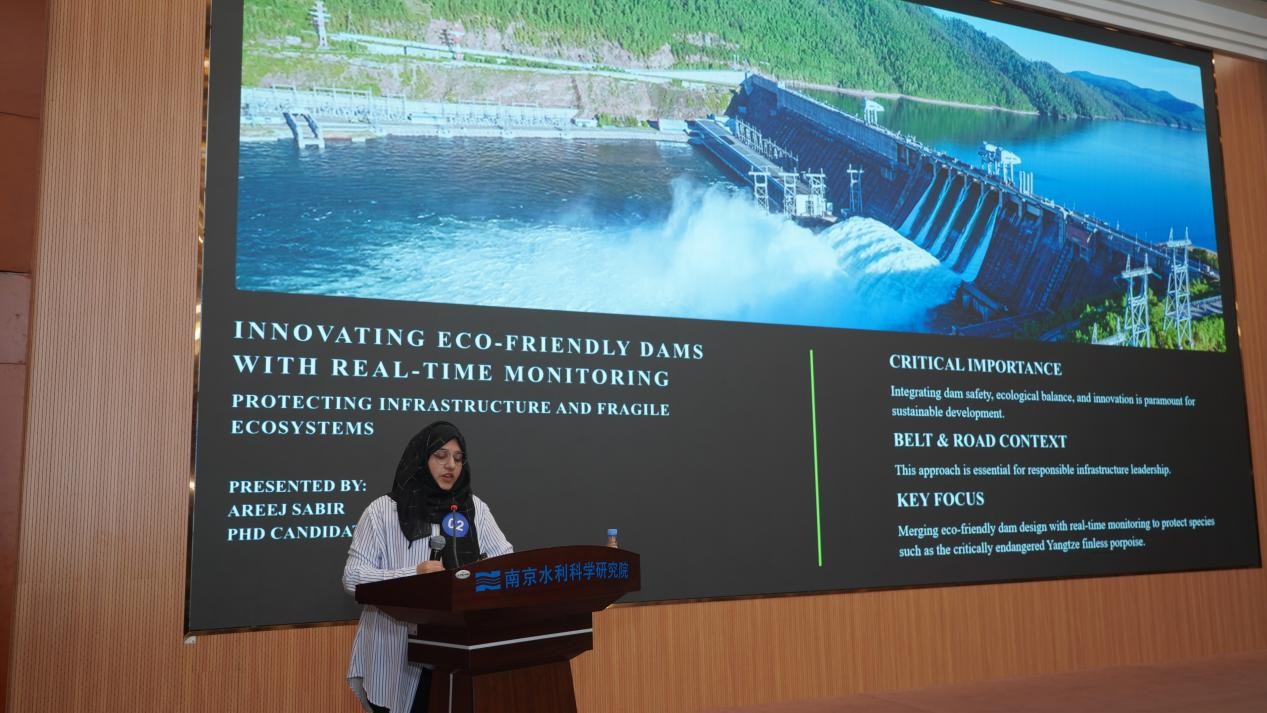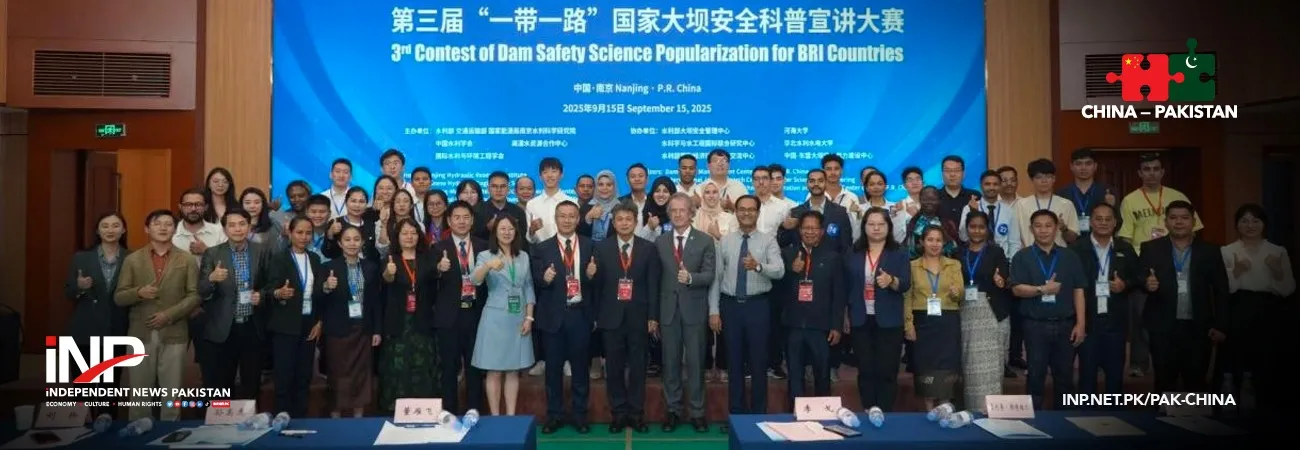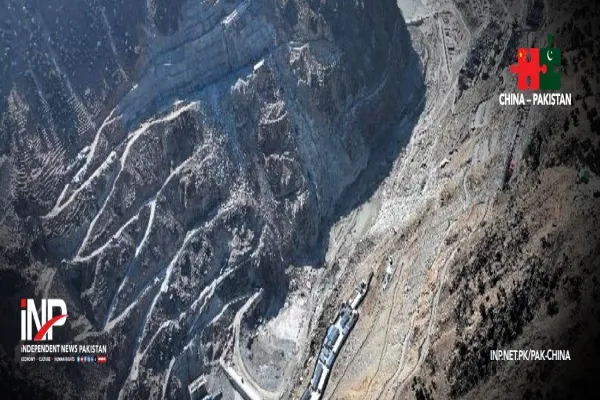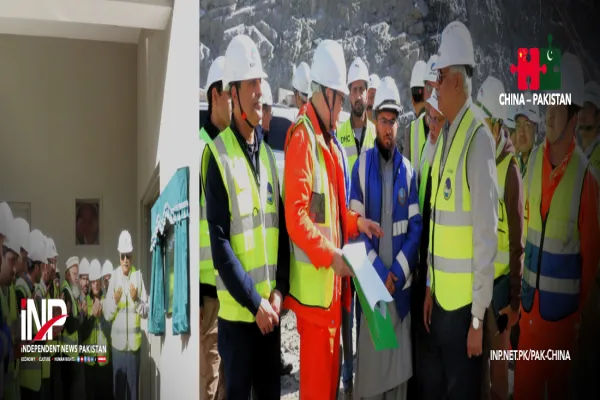i NEWS PAK-CHINA
Areej Sabir, a Pakistani PhD candidate from Hohai University, presented her innovative research on sustainable dam technology at the 3rd Contest of Dam Safety Science Popularization for Belt and Road Initiative (BRI) countries, Gwadar Pro reported. The event, hosted at the Nanjing Hydraulic Research Institute (NHRI), gathered experts and scholars from 17 countries including China, Pakistan, Bangladesh, Egypt, Indonesia, and Laos to advance knowledge sharing in critical water infrastructure management.
The 3rd Contest of Dam Safety Science Popularization for Belt and Road Initiative (BRI) countries, photo provided by Center for Research Innovation and Development (CRID), Dhaka, Bangladesh Under the theme “Better Dams, Better Life”, the forum facilitated discussions on sustainable water resource management, climate resilience, and transboundary water cooperation.
Areej’s presentation, “Innovating Eco-Friendly Dams with Real-Time Monitoring”, demonstrated how dam design can integrate natural processes through simulated seasonal flow patterns. Her approach aims to maintain ecological balance while supporting fish migration, spawning and overall aquatic biodiversity.
“China leads in dam engineering, and this platform provides crucial knowledge exchange opportunities for BRI nations,” Areej noted, emphasizing the importance of integrating ecological considerations into infrastructure development. Reflecting on Pakistan-China cooperation, Sabir described dam safety collaboration as “a cornerstone of our bilateral partnership”.
She highlighted that given Pakistan's significant water security and energy needs, particularly through projects like the Diamer-Bhasha Dam under China-Pakistan Economic Corridor (CPEC), collaboration with China’s expert institutions like NHRI is both logical and essential. “This partnership goes beyond contractor-client relations; it’s built on long-term strategic trust,” she stated.
The knowledge and technology transfer in areas such as seismic safety, sediment management and digital monitoring represent the most valuable aspect of this collaboration, according to Areej. She highlighted that such collaboration ensures long-term resilience through joint geological surveys, robust warning systems and maintenance protocols, ultimately safeguarding downstream communities and vital infrastructure investments.
The event serves as both a high-level international exchange and a capacity-building platform, effectively promoting knowledge sharing and collaboration among young scientific talents from BRI countries on water security. Areej Sabir concluded, “Presenting my PhD research alongside leading experts was a privilege, and I returned with valuable insights that will undoubtedly shape my work,” underscoring the event’s role in fostering sustainable development and regional cooperation.

Credit: Independent News Pakistan (INP) — Pak-China









